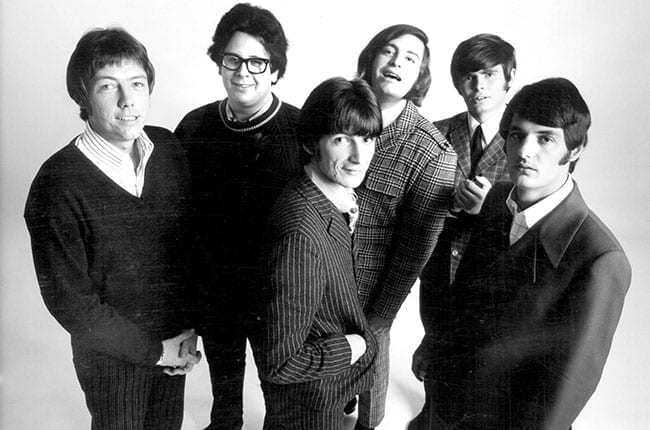6/28/2015
Satellite Radio industry leader Sirius XM agreed on Friday to pay five record labels $210 million for the company’s use of pre-1972 recordings, potentially resolving a two-year legal battle in Los Angeles Superior Court. Due to federal copyrighting laws were not established for recordings until February 15th, 1972, separate from longstanding protections for songwriters, many providers such as Sirius and Pandora have not paid royalties for recordings made prior to that date. In 2013, 1960’s rock band, The Turtles, sued Sirius in three separate courts, New York, California, and Florida, accusing Sirius of broadcasting their music without permission, eventually turning the case into a class-action lawsuit seeking $100 million in damages. Five labels followed shortly thereafter, filing a lawsuit on their own leading to the recent settlement. Plaintiffs include: ABKCO Music & Records, Capitol Records, Sony Music Entertainment, UMG Recordings and Warner Music Group. As part of the settlement agreement, the labels are permitted to broadcast the recordings without any additional payment required until December 31, 2017. Nonprofit digital royalties’ clearinghouse, SoundExchange, estimates that artists with pre-1972 recordings missed out on over $60 million in 2013 alone, and that Sirius only pays roughly $400 million in royalties annually while earning $4.2 billion in revenue last year.

Photo courtesy of Michael Ochs/Getty Images
Recording Industry Association of America (RIAA) CEO Cary Sherman called the settlement, “a great step forward for all music creators,” adding that, “Music has tremendous value, whether it was made in 1970 or 2015. We hope others take note of this important agreement and follow Sirius XM’s example.” It should be noted, however, that this settlement is only one of several court actions occurring, and the sizable agreement could incite additional legal maneuvering by artists and labels alike. Four of the labels, Sony, Universal and Warner Music, and ABKCO, a small label that holds the rights to several Rolling Stones songs, also filed in lawsuit in 2014 that is currently pending in New York State Supreme Court against streaming provider, Pandora, for similar claims. According to its spokesperson, Pandora claims that the company is confident that it has sound legal backing to broadcast the pre-1972 recordings. The Sirius XM settlement, however, may convince Pandora to change its posture. Additionally, the suits filed by The Turtles, a group most known for its 1960s hit, “So Happy Together,” are still unresolved, with appeals pending in New York and California. Sirius won a summary judgment in Florida, however, because the state does not have any legal authority in matters regarding pre-1972 performance rights. Many members of The Turtle’s class-action case will drop out of the suit due to the Sirius XM settlement; however, the agreement may push the company to settle this case as well in New York and California.
These actions are part of a wave of legal efforts by older artists fighting back against copyright infringement in the modern music industry. Grammy Award-winning artist, Sam Smith, whose song “Stay With Me,” won the 2015 Record of the Year, reached a multimillion dollar settlement with Tom Petty, who claimed that the music in the song resembles his 1989 hit, “I Won’t Back Down.” It also follows a jury award of $7.3 million in March to the family of Marvin Gaye from produce Pharrell and artist, Robin Thicke, for sampling Gaye’s 1977 “Got To Give It Up” on the duo’s 2013 smash, “Blurred Lines.” Even Congress has gotten in on the action as Representatives Jerrold Nadler (D-NY), and Marsha Blackburn (R-TN), in conjunction with the MusicFIRST Coalition, introduced the Fair Play Fair Pay Act, which would eliminate the pre-1972 loophole and update the broadcast rights laws to fit with the current media landscape. Blackburn said the bill would “ensure that the intellectual property of artists can no longer be exploited by Big Radio without compensation. All radio platforms should be treated the same when they use music to draw in listeners and earn billions in revenue. The playing field needs to be leveled and this is long overdue.” The bill is currently pending in Congress, although quietly gaining support.
The battles with the evolved music industry have not been limited to classic artists either, as Taylor Swift has become an activist for artist’s rights. Last year, Swift announced that she was pulling her music from streaming provider, Spotify, claiming that the service dramatically undervalues her and other artist’s contributions to the company’s success. Swift went to bat for the industry again by challenging Apple’s policy of not paying royalties to artists during free trials of the company’s new streaming services set to begin on June 30th. In an astoundingly quick one-day standoff, Apple relented, and has stated that all artists will be paid royalties even during the trial period. Despite the noteworthy cases recently, artist activism against the industry is nothing new. 1990s legends Pearl Jam has famously feuded with Ticketmaster for decades and even Frank Sinatra fought to reform the royalty laws regarding radio airplay. Swift’s successful pushback, as well as the recent lawsuits and settlement, will likely convince other artists to take a more aggressive approach when dealing with royalties and other potential infringements of intellectual property.
Sources:
Engadget – Billy Steele
New York Times – Ben Sisario
The Verge – Micah Singleton


Join the conversation!